1. Switchboard Operator
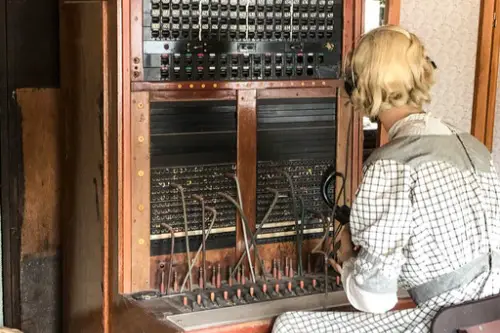
Switchboard operators were the human connectors of the telephone world. You had to memorize codes, patch calls manually, and keep conversations flowing smoothly. It required a lot of patience, charm, and quick thinking, and many young women saw it as a prestigious position. People trusted operators to handle personal and professional communications with care.
The invention of automated dialing and computerized systems wiped out this career. By the 1980s, most operators had transitioned into other office roles or retired. While it seems mundane now, back then being an operator meant you were the lifeline of modern communication. Losing this job marked the end of a very personal era in networking.
2. Lamplighter
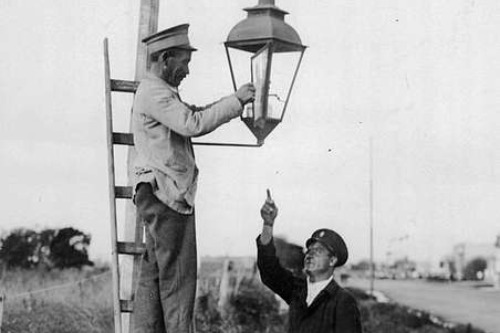
Before electricity lit up the streets, being a lamplighter was a coveted evening job. You’d stroll through town, lighting gas lamps one by one, and people admired your steady hands and sense of responsibility. It wasn’t glamorous, but there was pride in making the town glow at night. Kids would often follow, fascinated by the tiny flames coming to life.
The job vanished as electric streetlights took over, making lamplighters obsolete almost overnight. It’s hard to imagine now, but entire neighborhoods depended on someone to safely light the night. People once admired lamplighters the way we might admire electricians today. It’s one of those jobs that sounds magical in hindsight.
3. Elevator Operator
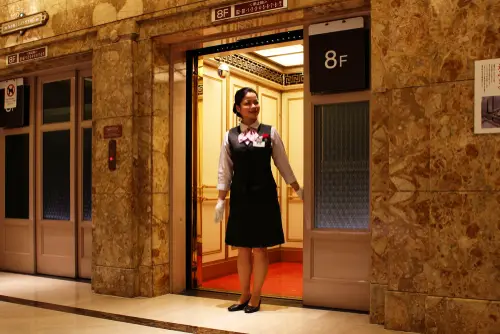
Riding in a building’s elevator used to be a full-service experience. Operators didn’t just push buttons—they welcomed guests, announced floors, and sometimes even pressed the right buttons for confused visitors. It was a job that required a mix of friendliness and precision, and it carried a sense of sophistication. People often dreamed of the steady work in swanky office buildings or hotels.
Automation and self-service elevators ended the need for human operators. By the late 20th century, most elevators were simple enough to operate without training. The role still evokes nostalgia for those who remember polished uniforms and polite greetings. It’s hard to imagine how social and interactive an elevator ride once could be.
4. Typist/Word Processor
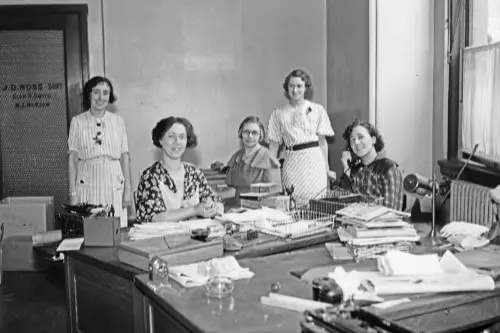
Before computers were household staples, typists were in high demand. Companies relied on them to produce letters, contracts, and manuscripts with speed and accuracy. The job carried status; being a fast, precise typist was a point of pride. Young professionals dreamed of office positions where their skills would be admired.
With personal computers and word processing software, the profession faded. Typing became a basic skill rather than a specialized career. What was once a gateway into the corporate world is now just a function of nearly every desk job. The disappearance of dedicated typists reminds us how quickly technology can shift a labor market.
5. Ice Cutter
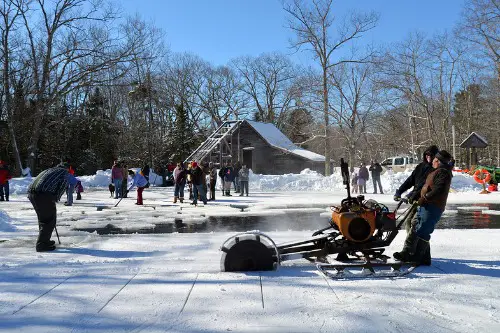
Before refrigerators, people hired ice cutters to harvest frozen lake blocks in winter. It was a physically demanding job but essential for storing food and cooling drinks during summer. Townspeople relied on these workers to ensure perishables survived the heat. Ice cutting required precision, timing, and strength, making it surprisingly respectable.
As electric refrigerators became widespread in the 20th century, the need for ice cutters vanished. Their craft, once critical for urban life, became purely historical. People now see ice delivery as a novelty rather than a necessity. This is a prime example of technology erasing a physically intense yet vital occupation.
6. Elevator Inspector (Pre-Automation)
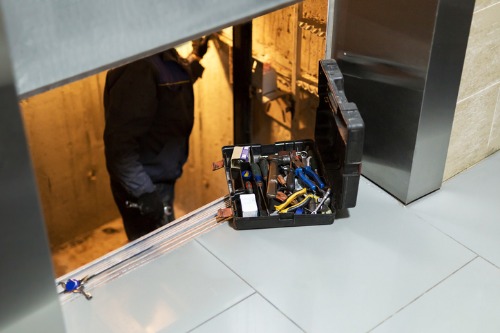
Before automated systems, elevators were prone to malfunctions, so cities employed inspectors to ensure safety daily. These workers manually tested the lifts, checking brakes, doors, and cables, often at great personal risk. Their attention saved countless lives and was highly valued. Many young engineers dreamed of starting their careers ensuring urban safety from above.
Automation changed everything by standardizing elevator systems with built-in safety mechanisms. Today, very few inspectors exist outside highly specialized industrial settings. The old role required courage, precision, and technical knowledge—qualities still respected but no longer applied this way. It’s a reminder of how risk shaped professions in earlier urban life.
7. Knocker-Upper
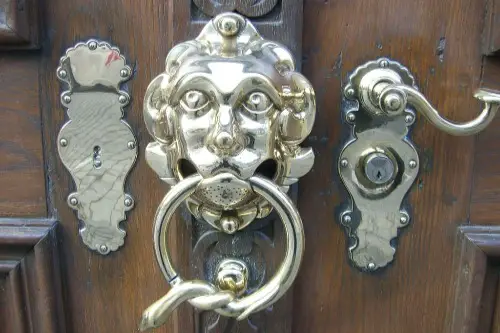
Before alarm clocks were affordable or reliable, knocker-uppers did the job for you. Using a long stick or a pea shooter, they tapped on windows to wake workers on time. It was a quirky profession, but punctuality was critical in factories, and people relied on these morning messengers. Some people even became local legends for their creative waking techniques.
The job disappeared with the mass production of alarm clocks and phones with alarms. Imagine depending on a stranger to wake you daily—today, it seems absurd. Yet, back then, a knocker-upper could be the difference between keeping your job and getting fired. It’s a charming example of human ingenuity meeting everyday need.
8. Rat-Catcher
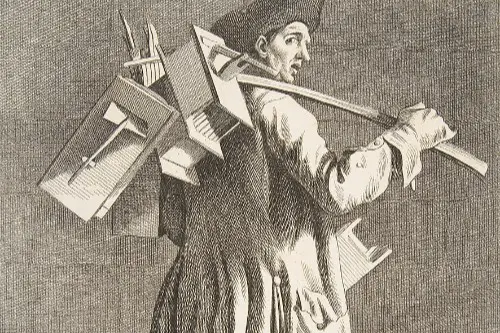
In the days before modern pest control, cities hired rat-catchers to manage infestations. It was a dirty, often dangerous job, requiring courage and sometimes clever traps or even dogs. People valued these workers for protecting homes and food supplies from vermin. Some became local heroes in towns plagued by plague or famine.
With the advent of chemical pest control and better sanitation, rat-catching became a relic. Few could imagine the social importance of chasing rodents for a living. The profession highlights how survival needs once dictated career choices. Today, it survives only in history books or festivals celebrating old trades.
9. Elevator Boy (Theaters)
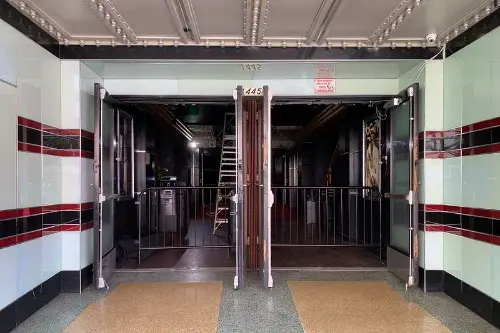
In large theaters and movie palaces, elevator boys guided patrons to the correct balcony. They were polite, sharp-dressed, and often had to juggle crowds with a smile. The job gave young men a foot in the door of the hospitality and entertainment industries. People admired the elegance of theaters where service extended to every detail.
Automation and smaller theater designs made the role obsolete. Modern multiplexes don’t require anyone to operate vertical transportation anymore. Elevator boys represent a blend of charm and utility that seems lost in today’s self-service world. Their disappearance marked a shift from human service to efficiency.
10. Pinsetter
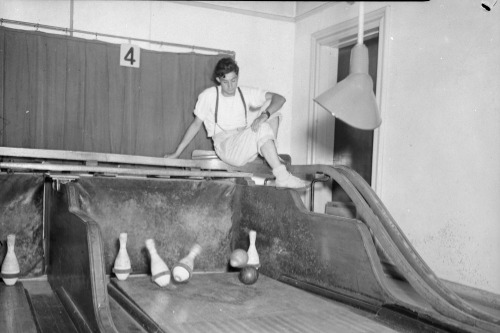
Before automatic machines, bowling alleys employed pinsetters to manually reset pins and return balls. It was tough work, often done by teens, requiring speed and alertness to avoid injury. Bowlers appreciated their silent, efficient labor, which kept games flowing. For many, it was a dream job during summer breaks.
Mechanical pinsetters wiped out the position in the mid-20th century. While bowling remains popular, the human touch in every frame disappeared. Pinsetters were unsung heroes of recreation who vanished when technology intervened. Their absence shows how even leisure industries evolve through automation.
11. Telegraph Operator

The telegraph was once the pinnacle of communication, and operators were the key to its magic. Sending and decoding Morse code demanded precision, speed, and mental agility. Many Americans aspired to this role for the chance to be at the forefront of technology. Messages that once traveled slowly could now traverse continents in minutes.
The invention of the telephone and later the internet ended the telegraph’s relevance. Operators faded away as messaging became instantaneous and simpler. Their skill set was highly specialized, making them crucial to commerce and government in their era. Today, their work is celebrated mostly in museums and historical reenactments.
12. Soda Jerk
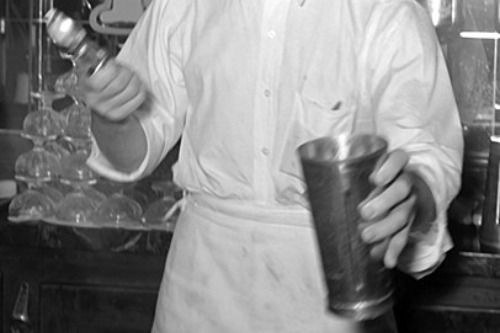
Working behind the counter at a soda fountain, soda jerks created fizzy drinks and ice cream sundaes while charming customers. The job required speed, flair, and social skills to keep up with lunchtime crowds. It was a coveted teenage or young adult position with the bonus of free treats. Soda jerks became iconic figures of mid-20th-century American culture.
The rise of fast food and self-service counters ended the era of soda jerks. Restaurants and diners shifted to efficiency, reducing the need for theatrical drink-making. Their disappearance marks the end of an era when service was both entertainment and nourishment. Soda jerks remind us that some jobs were as much about personality as skill.
This post 12 Jobs Americans Once Dreamed of Having That Don’t Exist Anymore was first published on American Charm.


